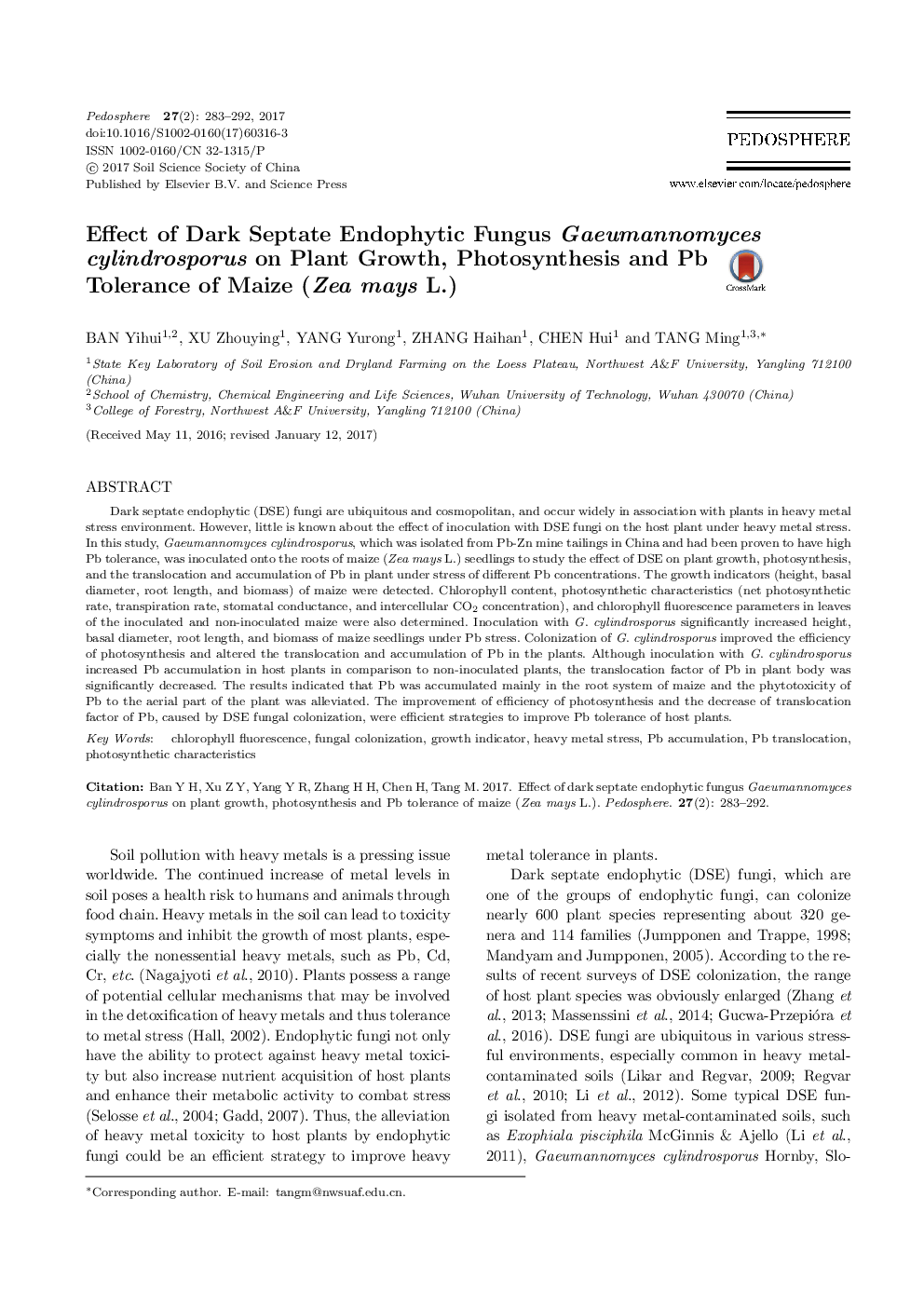| Article ID | Journal | Published Year | Pages | File Type |
|---|---|---|---|---|
| 8895512 | Pedosphere | 2017 | 10 Pages |
Abstract
Dark septate endophytic (DSE) fungi are ubiquitous and cosmopolitan, and occur widely in association with plants in heavy metal stress environment. However, little is known about the effect of inoculation with DSE fungi on the host plant under heavy metal stress. In this study, Gaeumannomyces cylindrosporus, which was isolated from Pb-Zn mine tailings in China and had been proven to have high Pb tolerance, was inoculated onto the roots of maize (Zea mays L.) seedlings to study the effect of DSE on plant growth, photosynthesis, and the translocation and accumulation of Pb in plant under stress of different Pb concentrations. The growth indicators (height, basal diameter, root length, and biomass) of maize were detected. Chlorophyll content, photosynthetic characteristics (net photosynthetic rate, transpiration rate, stomatal conductance, and intercellular CO2 concentration), and chlorophyll fluorescence parameters in leaves of the inoculated and non-inoculated maize were also determined. Inoculation with G. cylindrosporus significantly increased height, basal diameter, root length, and biomass of maize seedlings under Pb stress. Colonization of G. cylindrosporus improved the efficiency of photosynthesis and altered the translocation and accumulation of Pb in the plants. Although inoculation with G. cylindrosporus increased Pb accumulation in host plants in comparison to non-inoculated plants, the translocation factor of Pb in plant body was significantly decreased. The results indicated that Pb was accumulated mainly in the root system of maize and the phytotoxicity of Pb to the aerial part of the plant was alleviated. The improvement of efficiency of photosynthesis and the decrease of translocation factor of Pb, caused by DSE fungal colonization, were efficient strategies to improve Pb tolerance of host plants.
Keywords
Related Topics
Life Sciences
Agricultural and Biological Sciences
Soil Science
Authors
Yihui BAN, Zhouying XU, Yurong YANG, Haihan ZHANG, Hui CHEN, Ming TANG,
